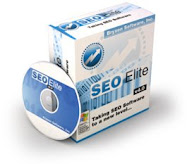It is the trend du jour. They are the subject of pundit press, guru glare, and are ready for mainstream adoption. RSS feeds and their communication kin the blog -- are bandied about as the next big thing.
Everywhere you look there are articles and ebooks touting the electronic affinity and high value of these two forms of media creation and distribution. However can these two forms of digital media drive more traffïc to your site, or -- are they just hype?
Blogs are short for web logs and are like daily dairies on the web. Blogs started out as ways for Internet reality types to share their lives with other people on the web, without having to learn very complicated web design applications like Dreamweaver or Microsoft FrontPage.
While on the other hand RSS feeds are the natural extension of Blogs. RSS without getting into all the arguments over the name (for the purpose of this article) stands for Really Simple Syndication.
RSS feeds can take your blog postings and syndicate a prevïew of your blog headlines all over the Internet. Therefore in theory RSS feeds can drive traffïc to your blogs and websites similar to how search engines have become major marketing channels.
If your blog's headlines are syndicated on major high traffïc websites, RSS directories and Internet Portals, it could be another major source of traffïc to your website. But how effective is blog marketing to the average Internet marketer who doesn't have a major personal brand name like John Reese, Yanik Silver, or Dr. Ken Evoy?
This question is reflected in the concerns of bottom-line focused Stephanie McIntyre, president of eSales Unlimïted, an eBay Power Seller, auction trainer and coach. Stephanie has generated over $200,000 in profitable salës on eBay and has low tolerance for marketing hype.
"I am not convinced that blogging can really drive traffïc or profitable salës states Ms. McIntyre. Internet Gurus like James Maduk haven't convinced me that I can really make monëy with a blog."
She isn't alone in her skepticism. Many online business people are confused why all this hype is being created about blogs and RSS feeds. Many wonder if they can really deliver on their potential to drive more traffïc and salës to business oriented Internet websites.
In short, can blogs and RSS boost really boost our website traffïc? I put the technology to the test in the last four weeks to get some definite answers.
I found blogs are having some major income impact on the bottom-line of some companies and business people.
Despite many reservations by some Netpreneurs, blogs and RSS feeds have been boosting the bottom-lines of some marketers. Willie Crawford, a well known Internet marketer generates over $1000 dollars a day from mostly blog generated Adsense™ revenue. Blogging for Crawford has become yet another profitable part of his business.
Weblogs Inc., a publisher of almost 100 targeted niche blogs is noted as being on its way to generating 1 million dollars in Adsense™ revenue! This had to be a compelling reason for AOL to recently buy Weblogs Inc., for a whopping 25 million.
Still another very successful Internet business person I spoke with (who doesn't what to be identified) uses blogs as a förm of buzz advertising, resulting in $50,000 in indirect eCommerce salës when properly timed. This business person does close to 17 million dollars in online salës.
I also have been having good success saving time and monëy by publishing quickly with blogs. My blogs generated good income for me, however I wanted to see if the distribution of my blog headline via RSS feeds would bring in any new revenues.
One of the promotional ways blogs and RSS are purported to increase your online traffïc is the strategy of increasing your website's traffïc with what I call horizontal SEO. Horizontal SEO is called "winning the search engine lottery" by Internet salës star John Reese
Most SEO firms and web marketers focus solely on high rankings for popular keywords (Vertical SEO). In contrast a more comprehensive search engine driven Internet marketing campaign would scale more horizontally or deeper with more rich keyword informed content pages.
In other words a horizontal SEO campaign would be like playing the lottery. Your odds of winning the lottery are greater if you have more tickets.
According to Reese "search engines algorithms change from day to day. Therefore, your ranking will go up or down. But if you have more and more tickets in the SEO lottery you have a better chance of winning."
Blogs and RSS feeds give you the ability to create and distribute a lot of web information (content) on the fly that's distributed throughout the Internet at myriad media outlets. Blogs and RSS feeds drive more traffïc to your site by helping you wïn the SEO lottery with horizontal SEO.
Blogs and RSS can be the easiest and most efficient way to wïn the SEO lottery. They do this by creating lots of targeted niche content on your, and other partner, sites that carry your feeds.
In the last 4 weeks, I launched a website with a blog component without optimizing it in the traditional vertical SEO fashion. It doesn't appear on top of any search engine results worth mentioning. I wanted to see if the blog powered by RSS feed would drive significant traffïc to my site.
The results are amazing! I have been totally blown away by the research. Chëck out why I have become a big believer in blogging and RSS in part 2 of this article. Visit http://www.searchengineplan.com/blog.htm to stay informed on the latest blogging, RSS, and SEO developments.
About The AuthorKamau Austin is publisher of eInfoNEWS.com and runs SearchEnginePlan.com. He is author of Always On Top "How to Get the Highest Search Engine ranking for your website. See more about his strategies at AlwaysOnToptheBook.com.
Monday, October 31, 2005
Sunday, October 30, 2005
Using New Content to Build Links
Sometimes, link building is more than just searching out sites to request links from. Sometimes you have to get creative in how you build links.
In this article, we look at another way of building links that doesn't really require you to go out and search for relevant sites to request links from.
The web is growing at a phenomenal rate
Technorati, a popular blog search and syndication site estimates that the blogosphere alone doubles in size every 5 months. As of the end of July 2005, Technorati was tracking over 14.2 million weblogs, and over 1.3 billion links.
Who knows how much the rest of the web grows? I would bet that while it doesn't double every 5 months its rate of growth is pretty impressive.
It is because of this growth in the web that other forms of link building become somewhat easier. I am talking about building links through content creation and publishing.
Chances are you are reading this article on the Text Link Brokers blog, or one of a number of syndication partners who agree to republish the article with links intact.
Through such syndication, you could come across this article through a variety of high profile websites on the web. In addition, these high profile sites are industry specific.
This means that any links I embed into this article (which is then syndicated) will ultimately point back to this site on important key phrases.
Think about this, for the time it takes me to write this article, I could have built as many as 2 dozen high quality, keyword rich links back to both the main site as well as the blog site.
Normally, for me to build 2 dozen high quality links for one of my clients I'd have to start with a list of about 500 somewhat related sites, filtering out those that are lower quality and submitting to 50 to 100 sites in hopes of achieving those 20 or so links.
And it has been my experience that I would be lucky to achieve 5 to 10 links from that initial list of 500 sites.
All this would have taken me about 5 or 6 hours - even longer if I hadn't used a few tools to help gather those links.
Yet hëre I am with much less effort, able to achieve almost the same number of links.
That's the nice thing about content - it can do so many things for your site:
- A growing site helps encourage search engine crawlers to visit repeatedly.
- A growing site has more pages which have the potential to rank for other phrases.
- A growing site offers more entry points to searchers.
- A growing site offers more opportunities for others to link to it.
- A growing site can help positively influence link popularity (if internal navigation is coded properly)
- And More...
Further, as visitors do searches on search engines, there is a greater opportunïty for your content to appear for those searches, helping to build your brand.
If you take your content development program a step further and syndicate your content to a wider audience (via blog pings and so on) you can reach even more people, potentially building even more links and allowing your name (and brand) to reach beyond the "traditional" web.
For example, when I do a search for my name, I find myself in traditional organic SERPs but also on sites like Google News, as well as most of the main blog search engines. This is because this site, and others I write for, are syndicated. Plus those sites that I mentioned earlier - the syndication partners - are also syndicated.
So my articles appear numerous times for the same search. This helps build my reputation online.
Not only does my name appear throughout the web, but articles like these also get picked up by even more sources. Ones that perhaps didn't read this blog, or one of the syndication partners, but they may have found it on Bloglines, Technorati or any of the other large blog search engines.
Then, the article gets picked up by even more sources, in its entirety, with links and all.
So, the number of new links I've created has nöw jumped from the original two on this article, to a couple dozen on our syndication partners to ????
It's interesting to see where articles get picked up. I've found myself quoted in PDFs belonging to Universities, on foreign sites where I've been translated into Korean, Chinese and even Russian. And, you guessed it, the links remain intact.
That's because these articles aren't like news - they last much longer than a press release which, while gaining huge exposure for 2 or 3 days, quickly disappears.
The articles last "forever" because they continue to be circulated by various sites who find them in searches, and either copy them or link to them. Then their sites get syndicated and found by others who then also link or copy the article.
You may begin to see that this type of linking can go on almost forever, because what I'm writing hëre isn't necessarily newsworthy, but it is an article that people will find useful for months and years to come (I hope). As it becomes more and more established on the web (and more entrenched, because of the number of high quality related links already pointing to it) it begins to take on a life of its own.
And the more articles which I write for this site which appear like this, the better it is for the site.
So, what is the downside to this plan?
The only one, really, is that you have to be able to write. And not just scribble your ideas down, but make them intelligible and easy to read.
This is what takes the practice. But I can tell you that while you may (and likely will) labor for hours over your first few articles, over time they do get easier.
So much so that you will begin composing them in your sleep, or while you are waiting for your bus, or any place else where you have "down time."
So if you are concerned that a massive and costly link building campaign is your only option to increasing your online visibility think again. Sometimes something as simple as an "I was thinking" article can drive dozens of new relevant links to your site.
About The AuthorRob Sullivan - SEO Specialist and Internet Marketing Consultant. Any reproduction of this article needs to have an html link pointing to http://www.textlinkbrokers.com.
Subscribe to:
Posts (Atom)









